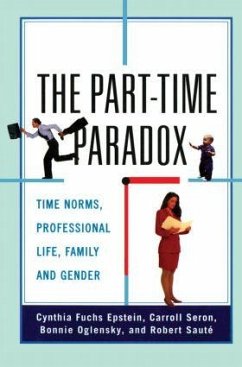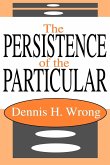Choosing to work part-time may seem like an attractive option for many workers, and it is a fact of the modern workplace that the availability of part-time work is increasing. However, the authors of this study find that there are cultural and social meanings attached to part-time work which suggest that it is in fact not such an easy option. Using case studies of legal professionals, this book highlights not only the negative sides, but also the coping strategies utilized to overcome the part-time paradox.
Today's professionals, especially women, are caught in a time paradox: can they build a career and a family at the same time? The Part-time Paradox explores the conflict and tension between the time demands of career and family life, and the choice of part-time work as a solution. The changing demographics of the family and the work place make it increasingly difficult for both men and women to meet the escalating time pressures facing a doctor, lawyer or manager. This book examines the social problems associated with demanding work schedules and choices, and also illustrates successful alternatives to full-time employment. It draws on interviews with attorneys in large law firms, in-house corporate counsels, and government service in order to explore the multiple dimensions of the part-time work solution. Although attitudes are beginning to change, one of the greatest impediments to part-time work is the stigma attached to it in many organizations, and the consequences for the careers of individuals who take it. Professionals define themselves, in part, by their commitment to overtime. The authors reveal how cultural perspectives of the true professional, part-time work, and stereotypes about gender roles can influence both an individual's decision making process and office policy. They show that in an environment where professionals perceive part-time work as deviant, it may require not just perserverance, but also a trade-off between time flexibility and professional status. The authors consider issues ranging from job security and the consequences of new technology, to the economics of part-time work and the division of labor in the family. The Part-time Paradox provides a timely overview of a growing crisis, as part-time and flex-time work arrangements increase.
Hinweis: Dieser Artikel kann nur an eine deutsche Lieferadresse ausgeliefert werden.
Today's professionals, especially women, are caught in a time paradox: can they build a career and a family at the same time? The Part-time Paradox explores the conflict and tension between the time demands of career and family life, and the choice of part-time work as a solution. The changing demographics of the family and the work place make it increasingly difficult for both men and women to meet the escalating time pressures facing a doctor, lawyer or manager. This book examines the social problems associated with demanding work schedules and choices, and also illustrates successful alternatives to full-time employment. It draws on interviews with attorneys in large law firms, in-house corporate counsels, and government service in order to explore the multiple dimensions of the part-time work solution. Although attitudes are beginning to change, one of the greatest impediments to part-time work is the stigma attached to it in many organizations, and the consequences for the careers of individuals who take it. Professionals define themselves, in part, by their commitment to overtime. The authors reveal how cultural perspectives of the true professional, part-time work, and stereotypes about gender roles can influence both an individual's decision making process and office policy. They show that in an environment where professionals perceive part-time work as deviant, it may require not just perserverance, but also a trade-off between time flexibility and professional status. The authors consider issues ranging from job security and the consequences of new technology, to the economics of part-time work and the division of labor in the family. The Part-time Paradox provides a timely overview of a growing crisis, as part-time and flex-time work arrangements increase.
Hinweis: Dieser Artikel kann nur an eine deutsche Lieferadresse ausgeliefert werden.









